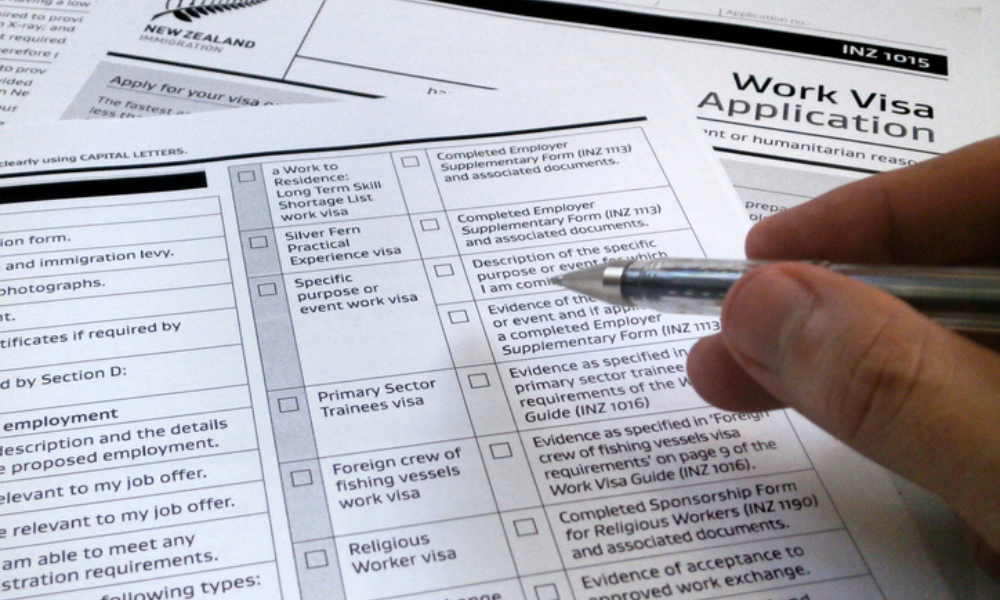
ERA clarifies legality of asking workers to pay for employer's visa support

The Employment Relations Authority (ERA) recently dealt with a case involving a worker's claim of constructive dismissal against her former employer, a car sales and parts business in Christchurch.
The worker, who had migrated from China, argued that she was owed unpaid wages and holiday pay, and had been forced to pay an employment premium to secure support for her work visa renewal.
The case revolved around a worker who came to New Zealand from China in 2015 to work and study. In October 2019, she started working for a car sales company in Christchurch as an assistant manager.
The worker’s role involved stock management, communication with suppliers, and Facebook marketing. The company was small, with only two other employees, and was managed remotely by a director residing in China. All communication was conducted via WeChat messaging.
Over the course of her employment, the worker was subject to four different employment agreements. The ERA noted:
"[The worker] was the subject of four employment agreements during her time with [the employer]."
These agreements showed changes in her job title, working hours, and pay rate. The first agreement, signed before employment started, outlined a position as an assistant manager with specific working hours and an hourly rate of $22.
The second agreement, signed in December 2019, changed the job title to "manager" with a pay increase to $25 per hour. The third agreement, signed in January 2020, slightly increased the hourly rate to $25.50. The final agreement, signed in October 2020, described the job as a retail manager with a minimum of 33.5 hours per week.
The situation became more complex when the worker's open work visa was set to expire in September 2020. The worker asked for the company's help with the visa renewal process. According to the worker, the company director made his support conditional on receiving a fee.
The ERA noted:
"[The worker] says [the director] made support conditional on her paying him a fee to assist and between January 2020 and October 2020 [the worker] paid him $4,583.97 for this purpose."
This payment would later become a key point of contention in the case.
The employment relationship started to deteriorate after the worker applied for a new work visa in September 2020. She took agreed unpaid leave until the new visa was confirmed in late October.
However, when the worker tried to return to work, she was told to take more personal leave. Despite this, she was still assigned work tasks to do remotely, which she did without pay.
The worker made several attempts to clarify her situation and return to paid work, but these were unsuccessful.
The ERA decision said:
"[The worker] says she worked normal business hours and her working days were initially Monday – Sunday but she did not work on a Wednesday and Thursday. She recalled 'clocking in' to work via a fingerprint system and being paid by the hour and some commission on cars sold."
In December 2020, the worker secured a new job with another auto industry company, starting in January 2021. This led to the worker raising a personal grievance against her former employer.
After considering the evidence, the ERA found that the worker had been constructively dismissed. It stated:
"[The worker's] resignation was as a result of the ongoing breach of her employer failing to remunerate her and there was a direct causal connection between the breach and the resignation."
The ERA ordered the employer to pay the worker for unpaid wages and holiday pay. It calculated that the worker was owed minimum wage arrears of 13 weeks, totalling $8,230.95 gross, plus holiday pay of $658.48 gross.
The Authority also addressed the issue of the payment made by the worker for visa support. It considered this an illegal employment premium, stating:
"Section 12A(1) of the Wages Protection Act 1983 makes it clear that a payment in the nature of a premium cannot be sought 'in respect of the employment of any person'."
As a result, the ERA ordered the repayment of the $4,583.97 that the worker had paid for visa support.
The ERA also awarded the worker compensation for hurt and humiliation. The decision said:
"[The worker] impressed as being a patient and honourable person who despite being ill-used by her employer sought to contribute to the business while she was not being rewarded."
Taking into account the impact on the worker and awards made in similar situations, the ERA awarded $10,000 in compensation.